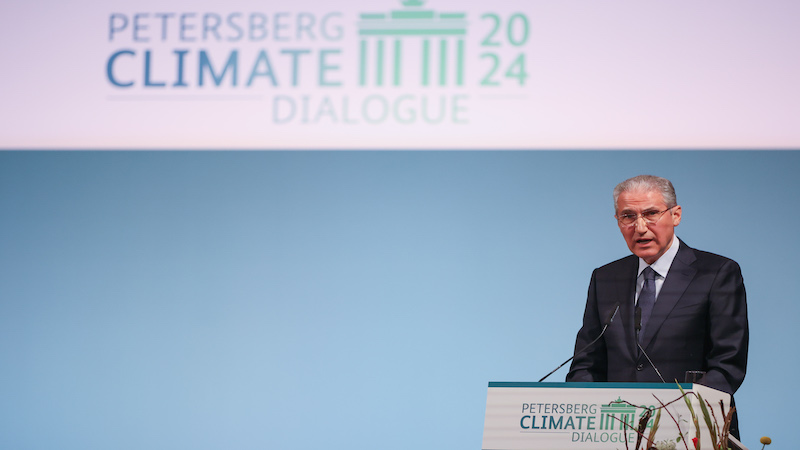Comment: Amid record-breaking climate impacts, the COP29 host nation needs to ramp up action for an ambitious outcome in Baku
Manuel Pulgar–Vidal is WWF’s Global Lead for Climate and Energy and, previously, he was the COP20 President.
July will be a month of records. Athletes and spectators gather for the Paris Olympics to celebrate feats of human endurance and record-breaking achievement. But July is also seeing records of another kind breaking.
This month we experienced the hottest day ever in over 120,000 years meaning global temperatures are now the highest they have ever been as a result of climate change caused by burning coal, oil and gas, and deforestation.
This also means real-world impacts – every day, every hour and every minute. Just in the past few weeks, Hurricane Beryl destroyed parts of the Caribbean, a heatwave caused power outages in Saudi Arabia and Kuwait, and there were severe floods in Kenya.
In just four months, Azerbaijan will be in the global spotlight for two weeks when it will be responsible for spearheading UN climate talks in Baku. Government, businesses, media and civil society are anxious to know what the COP29 Presidency has been doing to shift the gears on diplomacy and ramp up global ambition.
COP29 priorities
In its recent Letter to Parties, the COP29 Presidency outlined some of its processes leading to Baku. It said its two pillars are to “Enhance Ambition, Enable Action”. It has pursued a raft of initiatives, but these will not pave the way for the systems change that is required.
The task at hand is clear.
First, we need a just and equitable transition away from fossil fuels. Second, we need a strong climate finance goal to deliver on this. Third, we need countries to submit ambitious Nationally Determined Contributions (NDCs) that respond to the Global Stocktake and robustly adhere to the science.
Comment: A global wealth tax is needed to help fund a just green transition
The COP29 Presidency has a crucial strategic role to play in building pressure on countries to demonstrate what they are doing to meet all these commitments. Finding the landing ground on these pillars cannot wait until November. The real work is done in the months and weeks before the summit.
Let’s not forget that the COP28 deal was meant to mark the “beginning of the end” of the fossil fuel era. Yet, progress on this since the Dubai summit has been woefully slow. The window for a 1.5℃ future is closing fast and Azerbaijan, a significant fossil exporter itself, cannot ignore the root cause of the problem.
Finance deal
Similarly, we must avert a failure to agree to the new climate finance goal in Baku.
The Presidency says negotiating a fair and ambitious New Collective Quantified Goal (NCQG) is their priority. If that’s the case, then the clock is ticking. Effectively leading these finance talks will require proactive steps and a recognition of the scale of financing required. At least $1 trillion of investment is needed for climate and environment by 2030.
Azerbaijan’s proposal for a Climate Finance Action Fund (yet another fund with insufficient money!) would rightly mean a mechanism through which polluters do finally pay. However, this cannot be used as an excuse for countries to continue with fossil fuel expansion.
UAE’s ALTÉRRA invests in fund backing fossil gas despite “climate solutions” pledge
The recent appointment of Denmark’s Dan Jørgensen and Egypt’s Yasmine Fouad as a Ministerial Pairing for the finance deal is welcome.
But in addition to their support, there has to be political will for system change. There must be alignment on areas of agreement and expectations. Balancing the needs and demands of 190+ countries is challenging. But by engaging with champions from business, government and civil society across the board it can be done.
Civil society engagement
Azerbaijan does not need to reinvent the wheel with shiny new deals. Creating the enabling condi
Read More

